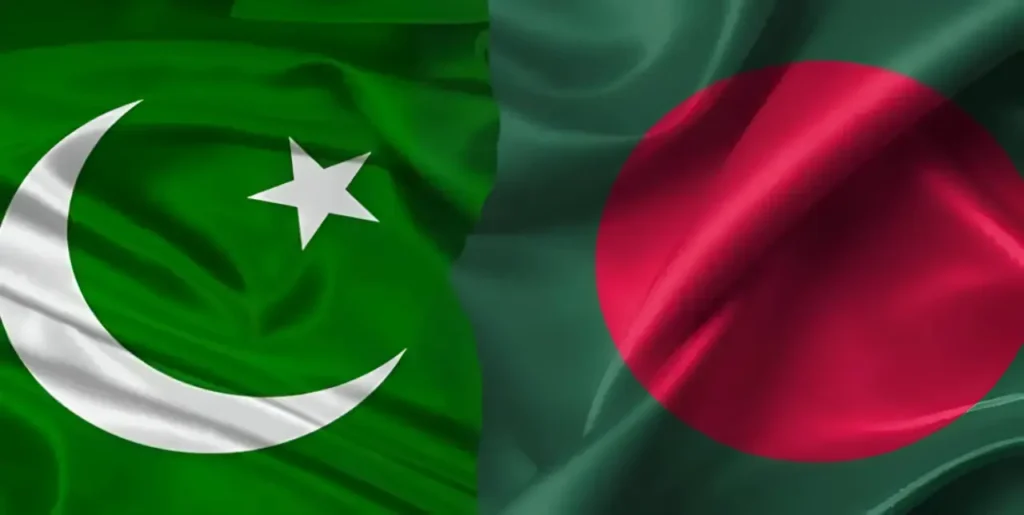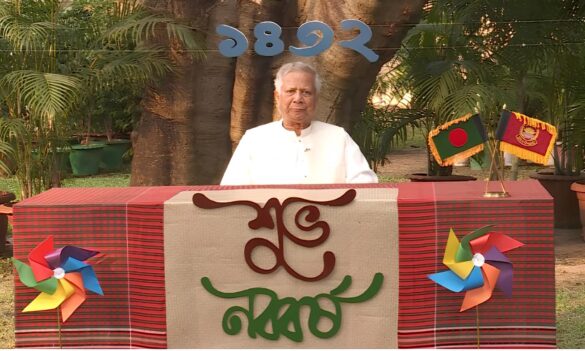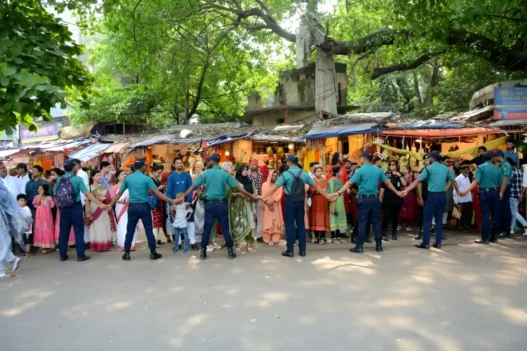When Bangladesh’s interim administration demanded a formal apology from Pakistan for the 1971 genocide, many in Dhaka dismissed the gesture as performative—a classic case of what some call “the elephant shows one kind of teeth, but chews with another.” This popular saying in Bengali alludes to concealed intentions behind public displays, and in this case, it captures the growing unease among observers about the real motives of Bangladesh’s unelected leadership.
The demand was raised during a rare high-level meeting between the two countries, held in Dhaka on April 17, 2025, marking the first Foreign Office Consultation in 15 years. The Bangladeshi delegation, led by Foreign Secretary Md Jashim Uddin, asked for a long-awaited apology for the atrocities committed by the Pakistani military in 1971. These included the massacre of an estimated three million people and the rape of over two hundred thousand women during the Liberation War. Bangladesh also called for compensation of USD 4.32 billion—its share of pre-1971 state assets—and the repatriation of nearly 300,000 Pakistanis stranded in camps in Bangladesh, as well as a portion of the international relief funds generated for victims of the 1970 Bhola cyclone.
But what startled many was not the nature of the demands—long held by previous governments—but the fact that they were reiterated by the interim regime of Muhamad Yunus, which took over after the ouster of Sheikh Hasina in August 2024. The Yunus-led administration, widely seen as leaning towards Pakistan and China, had until now given every indication of softening its stance on the historical grievances that underpin Bangladesh’s national identity.
A Dhaka-based intellectual, known for his leanings towards the Bangladesh Nationalist Party (BNP), did not mince words. “These are empty spectacles,” he said, speaking on condition of anonymity. “There’s no sincerity here. The interim government’s true agenda is not reconciliation but revision—an attempt to overwrite the very history that defines Bangladesh.”
Indeed, the contradiction between public posturing and policy action is striking. Since taking office, the Yunus government has not only reopened diplomatic channels with Islamabad but also actively courted closer cooperation. Following Yunus’s meeting with Pakistan’s Foreign Secretary Amna Baloch, plans have been set in motion to ease longstanding bottlenecks in trade and diplomatic engagement. A major development is the upcoming visit of Pakistan’s Deputy Prime Minister and Foreign Minister Muhammad Ishaq Dar to Bangladesh on April 27–28, 2025—the first such visit in over a decade.
Behind the scenes, the thaw has already begun. In January 2025, a Pakistani business delegation signed a memorandum of understanding with Bangladeshi counterparts, signalling the revival of bilateral trade. By the end of 2024, trade volumes had surged by 27%, with ambitions to cross the USD 3 billion mark within a year. After more than five decades, direct sea trade resumed in November, with Pakistani vessels docking at Chittagong and Mongla ports. Bangladeshi imports included basic commodities like sugar and potatoes—humble cargoes that symbolise a wider recalibration.
The National Board of Revenue (NBR) in Dhaka quietly lifted the rule mandating 100% physical inspection of Pakistani imports in September 2024, ostensibly to streamline trade and boost investor confidence. In another move that raised eyebrows, Bangladesh and Pakistan established a Joint Business Council on January 13, 2025, aiming to deepen private-sector partnerships. Travel protocols have been eased too—Bangladesh relaxed security clearances for Pakistani nationals, and Islamabad waived visa fees for Bangladeshis. Talks are underway to resume direct flights, dormant since 2018.
Military cooperation, long frozen, has also been rebooted in unexpected ways. A high-level Bangladeshi delegation visited Pakistan in January 2025, including meetings between Lt. Gen. S.M. Kamrul-Hassan and Pakistan’s Army Chief Gen. Asim Munir to discuss defence cooperation, arms procurement, and joint exercises. Bangladesh’s warship, BNS Samudra Joy, even participated in Pakistan’s multinational naval drill, “AMAN 2025,” marking Dhaka’s first naval deployment to Pakistan in over a decade.
According to reports Bangladesh has ordered artillery and tank ammunition as well as explosive materials in volumes three times higher than in previous years. Discussions are underway for Bangladesh to acquire JF-17 fighter jets, co-developed by Pakistan and China, as part of its “Forces Goal 2030” military modernisation. Training programmes for Bangladeshi officers in Pakistan are being launched, including plans for a Pakistani Major General to oversee programmes at Mymensingh Cantonment.
This warming of ties is not limited to defence and trade. Cultural exchanges and regional cooperation talks have resumed, including efforts to revive SAARC. Intelligence collaboration has also become unusually visible. Bangladesh’s DGFI chief visited Islamabad earlier this year—an event followed by two separate visits by Pakistan’s ISI, including a rare tour of the Chittagong region. For intelligence exchanges, such public exposure is rare and signals a deliberate attempt to convey political intent.
But this burgeoning friendship with Pakistan is not without friction. The memories of 1971 still burn fiercely in the collective conscience of Bangladesh. The war saw an estimated three million Bengalis killed and over 200,000 women raped by the Pakistani army. Sheikh Hasina’s government had placed this trauma at the centre of its foreign policy—pursuing war crimes tribunals and executing those involved in the atrocities, including Jamaat-e-Islami leader Motiur Rahman Nizami in 2016. These actions soured relations with Pakistan, and under Hasina’s tenure, ties were frozen—marked by halted flights, visa restrictions, and a near-total trade breakdown.
That context makes the interim government’s sudden overtures all the more jarring. The youth of Bangladesh and large sections of its civil society continue to uphold the spirit of the Liberation War. They have not forgotten the genocide, even if their unelected leaders today appear willing to overlook it for political convenience. While Sheikh Mujibur Rahman himself tried to maintain ties with Pakistan in the immediate aftermath of independence, the decades that followed have been shaped by a tension between history and realpolitik.
The current shift under Yunus signals not reconciliation, but erasure. By cloaking engagement with Pakistan in the language of old demands and historic grievances, the interim regime projects an image of continuity. But in reality, it is offering legitimacy to a regime that has never apologised for the past. This is not diplomacy—it is duplicity.







